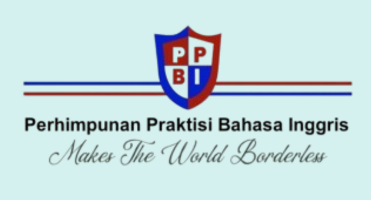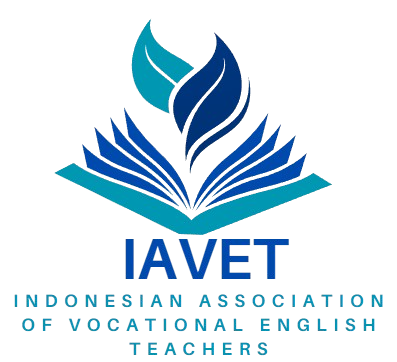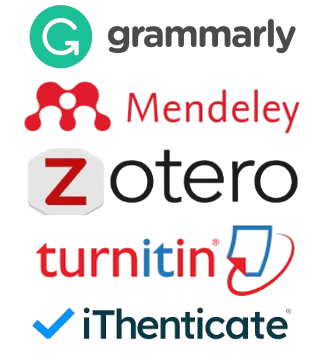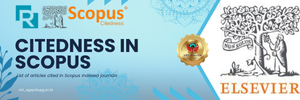From Inspiration to Fluency: Investigating the Effects of TED Talks on Speaking Competence in Language Instruction
DOI:
https://doi.org/10.31963/rial-ej.v1i2.4267Keywords:
speaking skill, TED Talks, Accuracy, fluency, comprehensionAbstract
This article presents the findings of a quantitative study investigating the impact of integrating TED Talks media in language instruction on students' speaking skills. The study focused on assessing the effectiveness of utilizing TED Talks videos as a resource to enhance students' verbal expression and communication abilities. The analysis of pre-test and post-test scores revealed a significant improvement in students' speaking skills following the integration of TED Talks. By incorporating authentic and engaging content from TED Talks, students were exposed to a variety of topics, expert speakers, and real-life language use, leading to enhanced fluency, vocabulary, and pronunciation. These results underscore the potential of integrating TED Talks as an effective pedagogical tool for promoting students' speaking skills in language instruction. Language educators are encouraged to incorporate TED Talks into their teaching practices to create dynamic and interactive learning experiences that foster linguistic development and effective communication. The study contributes to the existing body of research on the use of multimedia resources in language education and offers practical insights for educators seeking innovative approaches to enhance students' speaking abilities.References
Ahmad, S., Corresponding, T., Sattam, P., Abdulaziz, B., & Arabia, S. (2022). The Effects of TED Talks as an Instructional Tool on Developing EFL Learners’ Speaking Accuracy and Fluency: Attitude in Focus. Computer-Assisted Language Learning Electronic Journal (CALL-EJ), 23(2), 93–107.
Allagui, B. (2020). TED talk comments to enhance critical thinking skills in an undergraduate reading and writing course. Education and Information Technologies, 26, 2941–2960. https://doi.org/https://doi.org/10.1007/s10639-020-10388-w TED
Anas, I. (2018). Teacher professional development in an online community of practice (OCoP): Teacher’s engagement and participation in a facebook-mediated communication (FMC). Asian EFL Journal, 20(5).
Anas, I. (2019). Educational Technology and Teacher-Student Technology Competency: a Pathway to Teaching English with Technology. Journal of English Language Teaching and Linguistics, 4(2), 2019.
Anas, I. (2021). Teaching ESP online in the vocational higher education context. A Webinar Presentation. Asia Pacific Association of Computer-Assisted Language Learning (APACALL).
Anas, I., Basri, M., & Musdariah, A. (2022). Digital Language Teacher Professional Development from a CALL Perspective : Perceived Knowledge and Activeness in ECCR. CALL-EJ, 23(1), 1–21. http://callej.org/journal/23-1/Anas-Basri-Musdariah2022.pdf
Anas, I., Basri, M., Musdariah, A., & Anas, R. (2021). Teaching speaking online using digital mind mapping software (DMMS) and screen recording tool (SRT): A practical method. 18th International Conference of the Asia Association of Computer-Assisted Language Learning (AsiaCALL–2-2021), 621, 182–187.
Anas, I., & Musdariah, A. (2018). Being an E-Teacher: Preparing the ESL Teacher to Teach English with Technology. Journal of English Language Teaching and Linguistics, 3(1), 41–56.
Anderson, C. (2016). TED talks: The official TED guide to public speaking (1st ed.). Houghton Miffin Harcourt.
Brown, H. D. (2001). Teaching by principles: an interactive approach to language pedagogy. In Tesol Quarterly (Vol. 35). http://www.amazon.com/Teaching-Principles-Interactive-Approach-Language/dp/0136127118
Brown, J. (2015, November). TED Talks and critical literacy in the EAP classroom. TESL Ontario; Contact Megazine, 29–35.
Choirunnisa, M. R. (2021). TED talks use in speaking class for undergraduate students. Jambura Journal of English Teaching and Literature, 2(1), 35–40.
Creswell, J. W., & Creswell, J. D. (2018). Research design: qualitative, quantitative, and mixed methods approaches (5th ed.). SAGE.
Fang, F. G. (2017). World Englishes or English as a Lingua Franca: Where does English in China stand? English Today, 33(1), 19–24. https://doi.org/10.1017/S0266078415000668
Fitria, T. N. (2022). Using TED talks in English Language Teaching (ELT): Supplemental resources for English Language Teaching (ELT). Sosmaniora, 1(1), 36–43.
Gavenila, E. I., Wulandari, M., & Renandya, W. A. (2021). Using TED talks for extensive listening. PASAA, 61, 147–174.
Guinan, S. (2017). Enhancing speaking skills via videoconferencing | LTSIG. IATEFL. https://ltsig.iatefl.org/enhancing-speaking-skills-via-videoconferencing/
Harb, G. (2020). TED talks : An Approach for Activating the World Knowledge Schema of EFL writers. International Journal of Language and Linguistics, 5(4), 76–85. https://doi.org/10.30845/ijll.v5n4p9
Hughes, R. (2002). Teaching and researching speaking, second edition (2nd ed.). Pearson Education Limited.
Jenkins, J. (2006). Current Perspectives on Teaching World Englishes and English as a Lingua Franca. TESOL Quarterly, 40(1), 157–181.
Karunakar, M. T. (2019). Encouraging English language production using TED talks at the tertiary level: A Study in a technical college. Teaching English with Technology, 19(4), 57–68. https://files.eric.ed.gov/fulltext/EJ1233486.pdf
Khasbani, I. (2019). English as a Medium of Instruction in Indonesian Primary and Secondary Education: Theory and Reality. Englisia Journal, 6(2), 146–161. https://doi.org/10.22373/ej.v6i2.4506
Kozińska, K. (2021). TED talks as resources for the development of listening, speaking and interaction skills in teaching EFL to university students. Neofilolog, 56(2), 201–221.
Lhamo, T., & Chalermnirundorn, N. (2021). The use of TED talk videos to improve ESL speaking skills of Bhutanese sixth-graders. Phranakhon Rajabhat Research Journal (Humanities and Social Sciences), 16(1), 218–236.
Liao, G. (2009). Improvement of speaking ability through interrelated skills. English Language Teaching, 2(3), 11–14.
López-Carril, S., Añó, V., & González-Serrano, M. H. (2020). Introducing TED Talks as a Pedagogical Resource in Sport Management Education through YouTube and LinkedIn. Sustainability, 12, 10161. https://doi.org/https://doi.org/doi:10.3390/su122310161
Luoma, S. (2004). Assessing speaking. Cambridge University Press.
Mazouzi, S. (2013). Analysis of some factors affecting learners’ oral performance. Mohamed Khider University of Biskra.
Mei, L. L., & Masoumeh, A. S. (2017). An analysis of factors influencing learners’ English speaking skill. International Journal of Research in English Education, 2(1), 34–41.
Nation, I. S. P., & Newton, J. M. (2009). Teaching ESL/EFL Listening and Speaking. In Teaching ESL/EFL Listening and Speaking. Routledge:Taylor & Francis Group. https://doi.org/10.4324/9780429203114
Nazara, S. (2011). Students’ Perception on EFL Speaking Skill Development. Journal of English Teaching (JET), 1(1), 28–43.
Özmen, M. U., & Yucel, E. (2019). Handling of online information by users: evidence from TED talks. Behaviour & Information Technology, 38(12), 1309–1323. https://doi.org/10.1080/0144929X.2019.1584244
Puspita, D., & Amelia, D. (2020). TED-talk : A supplement material to promote students’ autonomy in listening. ELTIN Journal, 8(2), 91–102.
Richards, J. C. (2008). Teaching listening and speaking: from theory to practice. Cambridge University Press.
Romanelli, F., Cain, J., & Mcnamara, P. J. (2014). Should TED Talks Be Teaching Us Something? American Journal OfPharmaceutical Education 2014, 78(6), Article 113.
Sailun, B., & Idayani, A. (2021). The effect of TED talks video towards students’ speaking ability. Perspektif Pendidikan Dan Keguruan, 9(1), 65–74. https://doi.org/10.25299/perspektif.2018.vol9(1).1423
Shih, R.-C. (2010). Blended learning using video-based blogs: public speaking for english as a second language students. Australasian Journal of Educational Technology, 26, 883–897. http://ezproxy.usherbrooke.ca/login?url=http://search.ebscohost.com/login.aspx?direct=true&db=eric&AN=EJ906894&site=ehost-live;
Sindoni, M. G. (2011). Online conversations: a sociolinguistic investigation into young adults’ use of videochats. Classroom Discourse, 2(February), 219–235. https://doi.org/10.1080/19463014.2011.614055
Takaesu, A. (2013). TED talks as an extensive listening resource for EAP students. Language Education in Asia, 4(2), 150–162.
Tatyana, S., Anna, K., Sevara, R., & Altynay, Z. (2021). The advantages of using TED talks materials in ESL classrooms. Journal for Educators, Teachers, and Trainers, 12(2), 81–87. https://doi.org/10.47750/jett.2021.12.02.011
Tilwani, S. A., Vadivel, B., Uribe-hernández, Y. C., Wekke, I. S., & Haidari, M. M. F. (2022). The Impact of Using TED Talks as a Learning Instrument on Enhancing Indonesian EFL Learners’ Listening Skill. Education Research International, 8036363. https://doi.org/https://doi.org/10.1155/2022/8036363
Torky, S. A. E. F. (2006). The Effectiveness of a Task- Based Instruction program in Developing the English Language Speaking Skills of Secondary Stage Students. Ain Shams University Women’s college.
Downloads
Published
Issue
Section
License
Copyright (c) 2023 Research and Innovation in Applied Linguistics-Electronic Journal

This work is licensed under a Creative Commons Attribution-ShareAlike 4.0 International License.
Authors who publish with this journal agree to the following terms:
Authors who submit article to this journal, agree to grant the copyright to Research and Innovation in Applied Linguistics (RIAL) under a Creative Commons Attribution License: Creative Commons Attribution-ShareAlike 4.0 International License.
![]()
For collaborative works, authors should ensure that they have secured the necessary permissions from co-authors to submit the manuscript and grant the rights outlined in this policy.
Archiving and Access:
RIAL upholds an open access policy, ensuring that articles are freely accessible to a global audience upon publication. Authors' work will be archived electronically, facilitating its long-term availability and visibility.









.png)


